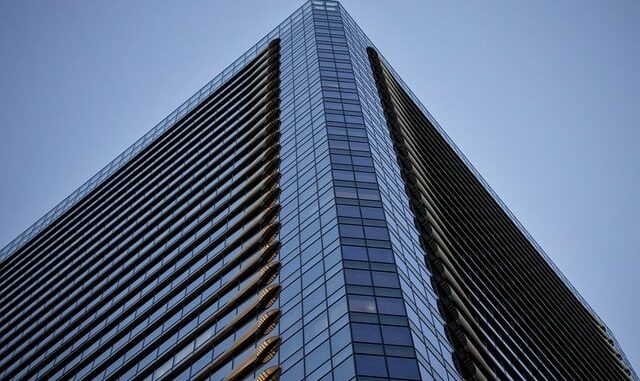
Summary
The Building Safety Regulator (BSR) updated its charging scheme on April 1, 2025, with a 5% increase in hourly rates. This inflationary adjustment affects various services, including building control approvals, assessments, and inspections. The BSR aims to recover its operational costs while incentivizing compliance and prioritizing safety in higher-risk buildings.
Focus360 Energy: property compliance services – pre-planning to post-construction. Learn more.
** Main Story**
Alright, let’s talk about the Building Safety Regulator’s (BSR) updated charging scheme in England. It went live on April 1st, 2025, and, frankly, it’s something you need to be aware of if you’re involved in, well, pretty much any aspect of building safety. At its core, it includes a 5% inflationary increase to hourly charges.
So, what does that all mean, exactly?
The BSR: A Quick Refresher
Established under the Building Safety Act 2022, the BSR falls under the Health and Safety Executive (HSE). It’s really the key player in overseeing building safety standards, especially when we’re talking about higher-risk buildings (HRBs). I see their role as having three key parts:
- First, they implement strict regulations for those higher-risk buildings. Think skyscrapers, big apartment blocks… places where safety is absolutely paramount.
- Secondly, they aim to raise the bar for safety standards across all buildings, not just the high-rises.
- Thirdly, the BSR wants to promote competence within the entire built environment industry. That includes the building control profession, which I think we all agree is much needed.
Put simply, it’s their job to set the standards for design and construction, help building owners manage safety risks, and oversee the registration of building control professionals and bodies. They’re involved in pretty much everything relating to making buildings safer. If only they could help me decide what colour to paint my living room…
The Nitty-Gritty of the Updated Charging Scheme
The updated scheme really reflects the BSR’s focus on cost recovery and, even more importantly, incentivizing compliance. Non-compliance can be seriously costly and you could land yourself in hot water, or worse, someone could get hurt! Here are the important bits:
- The 5% Hike: The BSR’s hourly charges have gone up 5%, now sitting at £151 per hour. It is what it is, I guess.
- What’s Chargeable?: Lots of things are now subject to charges; for example, building control approval applications for HRB work, assessments of applications to alter building regulations, and even building work inspections. Basically, if the BSR is involved, there’s a good chance it’ll cost you.
- HRB Focus: As mentioned, HRBs are central to this. The charging scheme applies to anything related to them – building control approvals, safety case reviews, even the registration processes for the buildings and their inspectors.
- Show me the Money: The BSR wants to recover the full cost of its services from those who benefit. Which, in theory, makes sense. The more intervention required, the higher the cost.
- Transparency is Key: The BSR is aiming for transparency and flexibility when it comes to updating charges. You’ll hopefully find clarity on payment and appeal processes too. That said, navigating bureaucracy can sometimes feel like wading through treacle.
- Proportionality: The charging structure is designed so that those activities needing more intervention and oversight will incur higher costs. Makes sense, right? If you’re doing something complex or potentially risky, expect to pay more.
What Does This Mean for You?
If you’re a dutyholder on a building project – especially if you’re responsible for an HRB – this updated scheme has implications. The 5% increase is, yeah, just inflation. But, it underlines how crucial it is to prioritize building safety and stick to the regulations.
Ultimately, you need to familiarise yourself with the chargeable functions and associated costs. Ignorance isn’t bliss here; it’s potentially expensive. If you’re working on a project with many aspects, it’ll be challenging to manage all of the individual components and ensure everything meets the required standards, but thats the reality, sadly.
Where to Find More Info
The BSR provides loads of resources, which is good. They provide free webinars and Q&As, which can be very useful to get up to speed. You can find further details on the HSE website. They also publish e-bulletins with scheme updates and advice. Keep an eye out for those.
Looking Ahead
The BSR will probably keep its charging model under review and adjust charges as necessary. That’s their flexible approach to cost recovery in action. So, the best thing to do is keep an eye on announcements from the BSR and stay updated on any future changes. After all, nobody wants a surprise bill, do they? Any changes will be published at least a week before coming into affect. It’s a good job, eh?


Given the focus on cost recovery and incentivizing compliance, how will the BSR ensure these increased charges don’t disproportionately affect smaller developers or building owners, potentially hindering necessary safety improvements?
That’s a really important point. The impact on smaller developers is definitely a key consideration. I believe the BSR is aiming for proportionality in its charging structure, with costs tied to the complexity and risk of the project. Perhaps further support or phased implementation for smaller entities could be beneficial. What are your thoughts on this?
Editor: FocusNews.Uk
Thank you to our Sponsor Focus 360 Energy
£151 per hour? Does that include tea breaks and pondering existential building safety questions, or is that billed separately? Asking for a friend…who may or may not be a very slow architect.
That’s a great question! I suspect tea breaks are a gray area. Perhaps efficiency savings come from architects having quicker existential ponderings? Always good to see architects engaging with building safety! Thanks for the comment and raising a smile!
Editor: FocusNews.Uk
Thank you to our Sponsor Focus 360 Energy